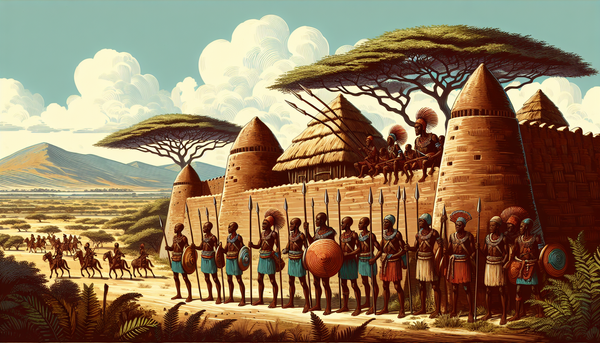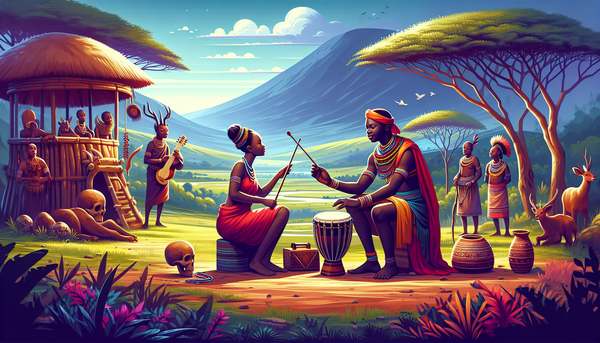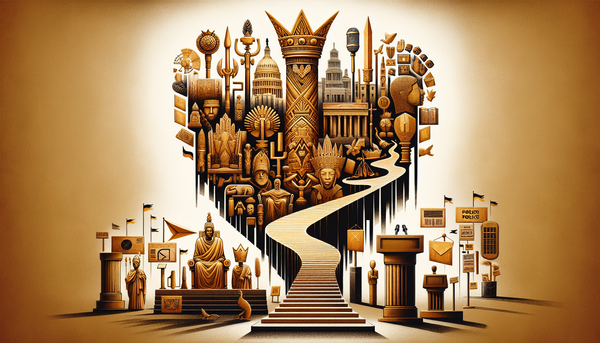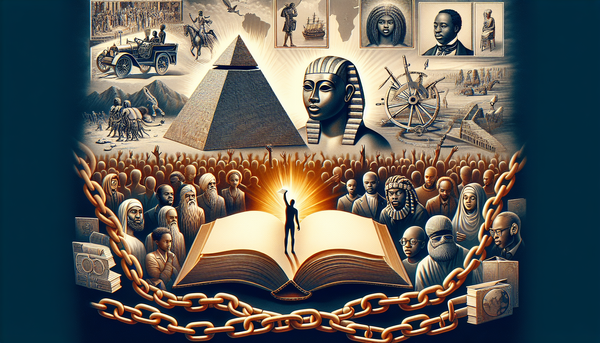The African Renaissance: Cultural Rebirth and Innovation
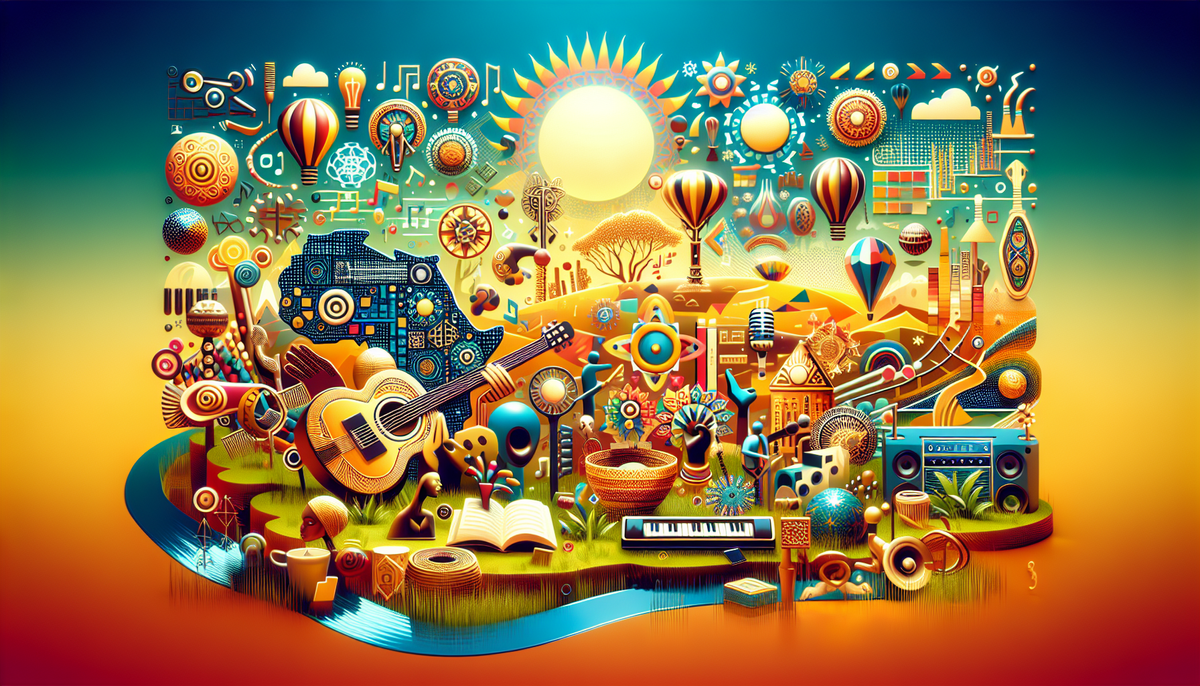
Exploring the Roots of the African Renaissance
The African Renaissance is a profound cultural movement that reflects the continent's rebirth, showcasing the richness of its heritage while embracing innovation. Rooted in the struggles for independence and self-determination, this renaissance seeks to reclaim African identity and promote the continent's cultural significance on the global stage. The seeds of this movement can be traced back to the early 20th century when influential thinkers like W.E.B. Du Bois and Marcus Garvey emphasized pride in African culture and heritage.
Furthermore, the post-colonial era catalyzed a resurgence of traditional practices, philosophies, and artistic expressions, allowing contemporary African voices to emerge. Writers, musicians, and artists began to draw inspiration from their historical backgrounds, infusing modern themes with age-old narratives. The influence of pan-Africanism also played a pivotal role, fostering unity across nations in the shared goal of cultural revival.
Today, the African Renaissance embraces innovation through technology, education, and entrepreneurship, blending tradition with modernity. As a result, this movement is not just a rediscovery of the past but a dynamic reimagining of Africa's future, empowering its people to redefine their identities on their terms and elevate their contributions to the global conversation.
Innovative Movements in Contemporary African Art
Contemporary African art has emerged as a dynamic force, reflecting the continent's rich diversity while challenging traditional boundaries. A blend of innovation and cultural expression, these movements celebrate the ingenuity of African artists and highlight the complexities of modern life. With mediums ranging from painting and sculpture to digital art and installations, contemporary African artists are pushing the envelope of creativity while addressing pertinent social, political, and economic issues.
One notable trend is the rise of conceptual art, where artists like El Anatsui and Yinka Shonibare utilize recycled materials and traditional techniques to create thought-provoking pieces that explore themes of identity, colonialism, and globalization. Additionally, the use of digital platforms has enabled a new generation of artists to reach wider audiences and gain international recognition.
Street art has also flourished, transforming urban spaces into vibrant galleries that speak to local realities and struggles. Initiatives like the 1:54 Contemporary African Art Fair have propelled African artists into the global spotlight, fostering a dialogue between cultures.
By merging tradition with contemporary themes, African artists are crafting narratives that not only redefine their artistic landscapes but also contribute to the global art conversation, making a lasting impact on the world's cultural heritage.
Technology and Digital Transformation in Africa
Technology and digital transformation are driving unprecedented changes across Africa, enabling innovation and fostering economic growth. With the proliferation of mobile phones and internet access, the continent is witnessing a digital revolution that empowers individuals and communities. Startups are emerging in various sectors, from fintech to agriculture, leveraging technology to solve local challenges and improve livelihoods.
Mobile banking, epitomized by services like M-Pesa, has transformed financial inclusion, allowing millions to access banking services for the first time. This has spurred entrepreneurial initiatives, as individuals can now engage in commerce and savings without traditional banking infrastructure. Additionally, the rise of e-commerce platforms has opened new markets, giving local businesses a broader reach and facilitating global trade.
Social media has become a powerful tool for activism and community engagement, enabling citizens to voice their concerns and organize movements. Digital education platforms are also enhancing access to quality learning, bridging the gap for students in remote areas.
Furthermore, initiatives like the African Union’s Agenda 2063 aim to harness technology for sustainable development. As Africa embraces the digital age, it is set to become a center for innovation, showcasing homegrown solutions that address both local and global challenges, forging a path toward a prosperous future.
Preservation and Revitalization of Indigenous Languages
The preservation and revitalization of indigenous languages in Africa pose a crucial component of the continent's cultural renaissance. With over 2,000 distinct languages spoken, these tongues not only carry unique histories but also encapsulate worldviews, traditions, and identities. However, many indigenous languages are endangered due to globalization, urbanization, and the dominance of colonial languages.
Efforts to revitalize these languages are gaining momentum, driven by communities, educational institutions, and technology. Grassroots organizations have emerged to conduct language documentation projects, ensuring that oral traditions and grammar are recorded for future generations. Additionally, language nests—immersion programs for young children—are being implemented in various regions to promote fluency and foster a sense of cultural pride from a young age.
Innovative technologies also play a vital role in this movement. Mobile apps and online platforms enable language learning and resource sharing, making it easier for speakers to engage with their heritage. Social media campaigns celebrate linguistic diversity, creating virtual communities committed to preserving their indigenous tongues.
By revitalizing and embracing these languages, African communities not only safeguard their cultural legacies but also strengthen their identities, fostering unity and resilience in an increasingly homogenized world.
New Trends in African Cinema and Media
African cinema and media are experiencing a transformative shift, marked by a surge of creativity, diversity, and technological innovation. With the advent of digital platforms, filmmakers are breaking traditional barriers and reaching global audiences like never before. Initiatives like Netflix investing in African storytelling have created opportunities for local talents to showcase their work, enabling unique narratives that reflect the continent's complexity.
One notable trend is the rise of genre-blending films, where directors experiment with elements of drama, comedy, and fantasy to address social issues. This not only captivates audiences but also challenges stereotypes, offering fresh perspectives on African life. Filmmakers like Wanuri Kahiu and Akin Omotoso are gaining international acclaim for their bold storytelling and innovative approaches.
Moreover, the advent of mobile filmmaking has democratized content creation, allowing aspiring filmmakers to produce high-quality work with limited resources. Crowdfunding platforms have emerged, empowering creators to finance projects that resonate with local communities.
Additionally, African media is increasingly engaging with themes of identity, diaspora, and cultural heritage, fostering a dialogue on the continent's past and future. As African voices gain prominence, the cinema landscape becomes a vital platform for self-expression, entertainment, and social change, revitalizing a rich tradition of storytelling.
Educational Reforms and Youth Empowerment Initiatives
In recent years, many African nations have recognized the critical need for educational reforms to equip youth with the skills necessary for thriving in a rapidly changing global landscape. These reforms focus on enhancing access to quality education, modernizing curricula, and incorporating practical skill development. Governments and NGOs are collaborating to create innovative educational models that foster critical thinking, creativity, and entrepreneurship among students.
Initiatives such as the African Union’s Continental Education Strategy aim to break down barriers to education, particularly for marginalized groups. Programs that promote inclusivity, gender equality, and vocational training are gaining traction, ensuring that all youth have equal opportunities to succeed.
Youth empowerment initiatives are emerging alongside these reforms to cultivate leadership, resilience, and entrepreneurial spirit. Organizations are providing mentorship, access to resources, and funding for startups, encouraging young people to become proactive contributors to their communities.
Digital literacy programs are also on the rise, enabling youth to harness technology for learning and entrepreneurship. By equipping young Africans with the necessary tools and skills, these educational reforms and empowerment initiatives are paving the way for a brighter future, fostering innovation, economic growth, and social cohesion across the continent.
African Fashion on the Global Stage
African fashion is gaining significant recognition on the global stage, celebrating the continent's rich cultural heritage while embracing contemporary trends. Designers are increasingly incorporating traditional textiles, intricate patterns, and vibrant colors into their collections, creating a fusion of modern aesthetics and cultural authenticity. Events like African Fashion Week and the Lagos Fashion Week have become vital platforms, showcasing the ingenuity of African designers and attracting international attention.
Prominent designers such as Stella Jean and Ozwald Boateng are redefining perceptions of African fashion, utilizing their platforms to highlight sustainability and ethical practices. This movement is bolstered by a growing interest from global brands seeking to collaborate with African talents, promoting cross-cultural exchange and diversity in design.
Social media has played a pivotal role in this evolution, allowing designers to share their work with a broader audience and engage directly with consumers. Influencers and fashion enthusiasts are showcasing African fashion on platforms like Instagram, creating a vibrant community that appreciates and promotes unique styles.
As African fashion continues to evolve, it not only serves as a form of self-expression and cultural representation but also challenges traditional narratives, positioning itself as a significant player in the global fashion industry and inspiring a new generation of creatives.
